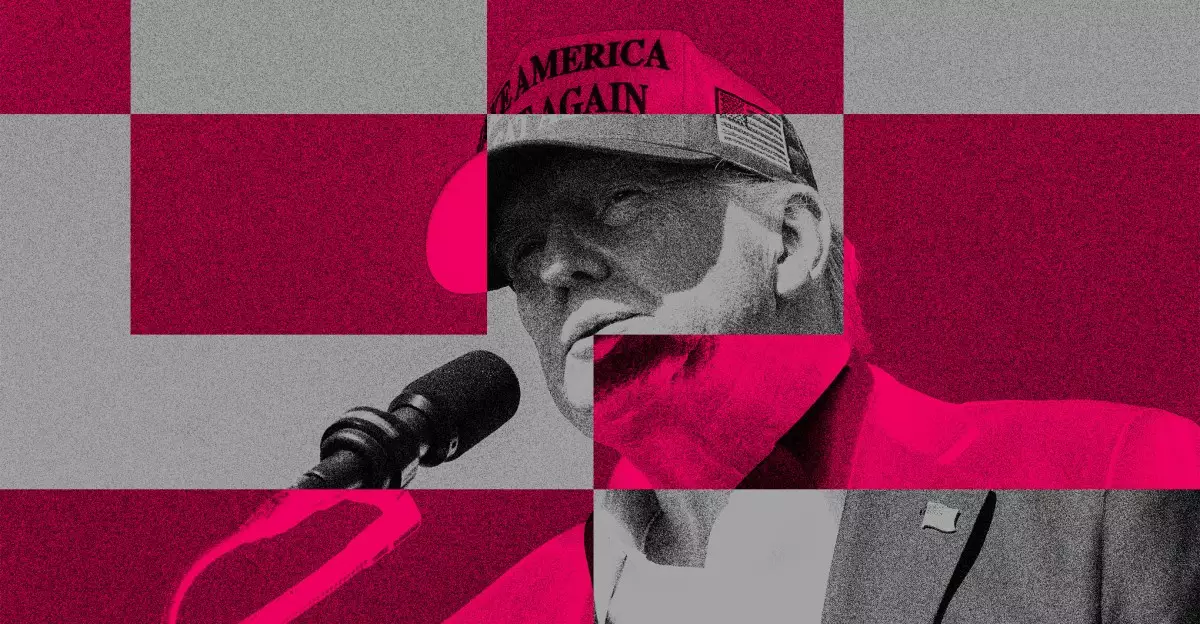In the complex landscape of U.S.-China technological rivalry, the Trump administration’s actions surrounding TikTok reveal a troubling inconsistency. On one hand, the government has publicly maintained a tough stance, even attempting to ban the platform citing national security concerns. On the other, it has engaged in a curious dance—creating government-run TikTok accounts and leveraging the platform for political communication—without securing a decisive deal with ByteDance. This paradox exposes a strategic flaw that undermines the administration’s credibility and raises profound questions about its sincerity in protecting American interests.
Prior to the current attempt at a deal, the Trump administration’s attitude oscillated, oscillating between aggressive bans and opportunistic engagement. The failed efforts to finalize an agreement by the September 17 deadline reflect a broader inability—or unwillingness—to navigate the geopolitical minefield. Instead of fully committing to either a ban or a constructive compromise, the government appears to operate in a gray area, leveraging TikTok’s popularity for political advantage without providing the necessary assurances that national security concerns are genuinely addressed.
This inconsistency signals a lack of strategic coherence. Are they really intent on protecting Americans from potential data breaches, or merely seeking to undermine a competing Chinese tech giant for political gains? The existence of a government TikTok account, @WhiteHouse, which posts content celebrating Trump’s achievements, suggests that the platform is more a tool for messaging and popularity contests than a serious policy platform. It taints the narrative, as authenticity is compromised when government entities visibly manipulate social media for partisan purposes, undermining public trust.
Strategic Madness or Political Opportunism?
The delayed enforcement of TikTok’s ban reveals that practical hurdles and political calculations often override security concerns. The initial executive order signed by Trump in January 2021 delayed the ban, but subsequent administration directives and fluctuating political priorities stalled any concrete enforcement. This back-and-forth reflects a strategic indecisiveness, where rhetoric often outpaces reality. Meanwhile, the platform’s enormous user base—particularly among younger Americans—makes it impossible for policymakers to ignore its influence.
Notably, Trump’s own campaign leverage of TikTok betrays the administration’s contradictory stance. While publicly framing TikTok as a threat, Trump’s team engaged deeply with the app’s demographics. The ascendancy of @TeamTrump, which outperformed Democratic accounts in followers and views, underscores the platform’s power as a political tool, regardless of official U.S. policy. Trump’s rhetoric about banning TikTok was, perhaps, little more than political theater—an attempt to appeal to hawkish voters or distract from other issues by portraying himself as a defender of U.S. cybersecurity.
This duality reveals a deeper truth: social media platforms, especially TikTok, are not just battlegrounds for security debates, but also arenas for political influence. The Trump administration’s inconsistent approach seems less driven by genuine security concerns and more by a desire to maintain influence over public opinion, even if that means engaging with a platform they ostensibly oppose.
Implications for Democracy and Governance
The broader failure of the Trump administration to reach a definitive deal to regulate TikTok demonstrates a troubling disregard for coherent policymaking. Instead of building a sustainable framework respecting national security and free enterprise, the approach resembles a patchwork of reactive measures. It creates confusion among the public, investors, and foreign partners, diminishing the U.S.’s standing in global tech diplomacy.
Furthermore, the selective use of TikTok—banning it in practice, yet exploiting it politically—casts doubt on the ethical foundations of such policies. If the goal is truly to safeguard citizen data and national interests, then inconsistent actions undermine that objective. When political expediency drives technology policies, the risk is that security becomes a secondary concern, sacrificed on the altar of electoral wins and media narratives.
The current scenario also highlights an alarming disregard for the rule of law and diplomatic norms. Opening a government TikTok account without a clear legal or diplomatic framework signals a tendency toward superficial measures that lack foresight or accountability. The real challenge lies in establishing a balanced, transparent, and enforceable policy—something that appears far from reach in the Trump administration’s chaotic approach.
In essence, the administration’s flirtation with TikTok exposes a leadership that is more adept at spectacle than strategic statesmanship. The result could be long-term damage to U.S. credibility in global technology governance and a dangerous precedent that favors burnished political narratives over pragmatic policy solutions. Such contradictions threaten not only the integrity of cybersecurity efforts but also the foundation of informed democratic decision-making in an increasingly digital world.

